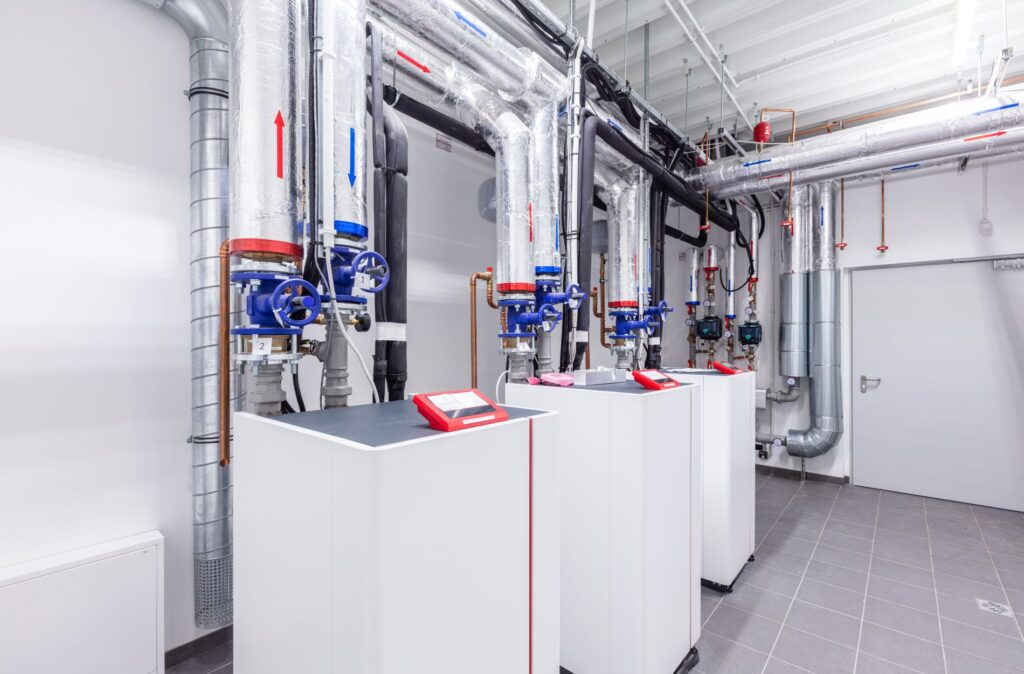For homeowners seeking efficient and reliable heating solutions, boiler systems have long been considered one of the top choices. Boilers provide consistent, comfortable heat by circulating hot water or steam throughout your home via a series of pipes connected to radiators, baseboard heaters, or radiant floor heating systems. Their versatility, efficiency, and durability make them an attractive option for many homeowners looking to invest in a long-lasting heating system.
Delve into the different types of residential boiler systems, learn the factors that impact their efficiency, and understand the importance of professional installation and maintenance to keep your boiler running smoothly. By thoroughly understanding your boiler system options, you can confidently invest in a heating solution best suited for your home’s unique requirements.
Join us as we explore the world of residential boiler systems, and equip yourself with the knowledge needed to make an informed decision when it comes to your home heating needs.
Types of Residential Boiler Systems
There are several types of residential boiler systems available, each offering unique benefits and features. Understanding the differences can help you make an informed decision when choosing the right boiler system for your home:
1. Conventional Boilers: Also known as traditional or regular boilers, conventional boilers require a separate water storage tank and a hot water cylinder. They are often suitable for homes with multiple bathrooms or high hot water demands.
2. Combi Boilers: Combination, or combi boilers, function as both a central heating system and a water heater. They heat water on-demand, eliminating the need for a separate hot water storage tank. Combi boilers are typically more energy-efficient and compact, making them ideal for smaller homes.
3. System Boilers: Similar to conventional boilers, system boilers need a hot water storage cylinder but do not require a separate cold-water storage tank. They provide a steady supply of hot water and are suitable for homes with multiple bathrooms and high hot water demands.
4. Condensing Boilers: These boilers are designed for optimum energy efficiency, capturing heat that would otherwise be lost through the flue and recycling it to heat the water. Condensing boilers can be found in all types – conventional, combi, or system boilers.
Factors Affecting Residential Boiler Efficiency
Efficient boiler operation is critical for minimizing energy consumption and maximizing comfort. Consider the following factors when evaluating your boiler system’s efficiency:
1. Boiler Size: The size of your boiler system should match your home’s heating requirements. An undersized boiler will struggle to provide adequate heat, while an oversized boiler can lead to energy wastage.
2. Fuel Type: Boilers can be powered by different fuel types, including natural gas, propane, oil, or electricity. Each fuel type has its own efficiency and cost considerations.
3. System Design and Installation: A well-designed and installed boiler system ensures proper distribution of heat throughout your home and maximizes system efficiency.
4. Insulation: Proper insulation, window seals, and weatherstripping can significantly reduce heat loss in your home, making your boiler system more efficient.
Importance of Professional Boiler System Installation
Professional installation is crucial for the success and longevity of your boiler system. When you choose our professionals for your installation, you receive:
1. Expertise: Our technicians have the necessary knowledge and experience to ensure your boiler system is installed correctly and configured for optimal performance.
2. Proper Sizing: We’ll assess your home’s heating requirements to select the right boiler system, guaranteeing efficiency and consistent comfort levels.
3. Safety Measures: Our experts follow strict safety guidelines and industry best practices, ensuring your boiler system is installed safely and adheres to local codes.
4. Warranty Protection: Professional installation is often required to maintain the manufacturer’s warranty on your boiler system, providing you with peace of mind and protection for your investment.
Boiler System Maintenance and Repair Services
To maintain your boiler’s efficiency and longevity, regular maintenance and prompt repairs are essential. Our skilled technicians provide:
1. Routine Maintenance: By scheduling regular tune-ups, you can ensure your boiler system continues to function at peak efficiency and performance levels.
2. Inspection and Diagnosis: Our professionals can quickly identify and address any issues impacting your boiler’s performance, minimizing downtime and inconvenience.
3. Repairs and Replacement: We have the tools, parts, and expertise to repair or replace any boiler system components, ensuring your home remains warm and comfortable.
4. Expert Guidance: Our technicians are always available to answer any questions or provide advice regarding your boiler system’s maintenance and repair needs.
Conclusion:
Residential boiler systems are a reliable and efficient choice for homeowners seeking long-lasting heating solutions. By understanding the types of boiler systems available, considering the factors affecting efficiency, and recognizing the importance of professional installation and maintenance, you can make a well-informed decision for your home heating needs.
At Gregg Heating & AC, our team of expert technicians is dedicated to providing top-quality boiler installation, maintenance, and repair services for your boiler system. Reach out to us today to schedule a consultation and learn how a residential boiler system can enhance your home’s comfort and energy efficiency!












